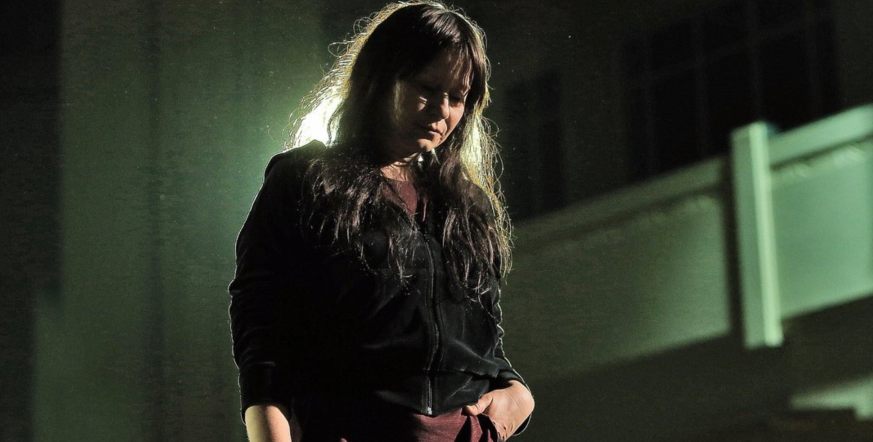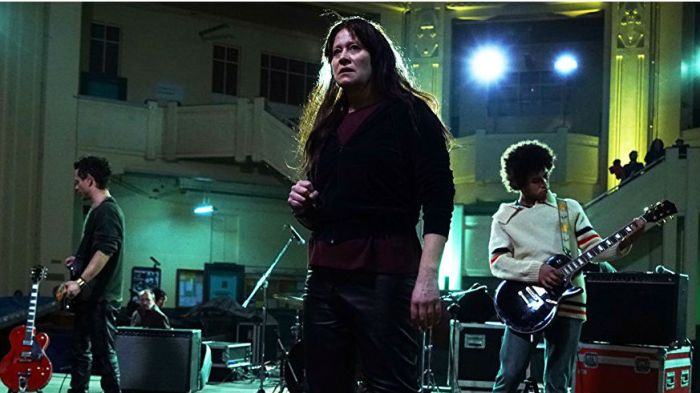The biopic is a tricky film to master.
Most of the time a biopic is made it only focuses on the main moments of its subjects life, and, as a result, they never come close to merging together in a coherent or cinematic fashion. Instead they mostly just feel like the movie equivalent of scrolling through a Wikipedia page.
That’s exactly what makes “Nico, 1988” such a unique biopic, as it is captivating, interesting, has a distinct and gritty style, while, most importantly, gives you genuine insight into the singer, her life and her struggles.
Writer and director Susanna Nicchiarelli is the architect of “Nico, 1988’s” success, and she recently talked me through her process of making the film and why she wanted to explore the legendary singer, model and artist in her later years.
What were the origins of “Nico, 1988”?
The first thing that intrigued was her voice, coming out of The Velvet Underground & Nico record, which I listened to when I was in my 20s, which was the end of the 90s. When you first listen to that album, Nico has a man’s name and a very deep voice. So I remember thinking, ‘Is it a man or a woman?’ Then I was fascinated by this voice, and I wondered what she had done afterwards. I listened to the music she had done afterwards and liked it very much. Especially certain songs off certain records. I also understood that she made very difficult music, especially for the time. I also realized that she had been a very interesting artist. At the same time I would keep seeing her in rock star biopics, and she would only pass round because she was going to bed with someone famous. And I would read quotes, like the one from Warhol that said, ‘She became a fat junkie and then disappeared.’ It was so not true. Because she had done so many things since the Velvet Underground experience that I felt the urge to tell the second half of the story.
As “Nico, 1988’s” writer and director what was your process for starting on the film then?
I read everything that had been written about her and saw documentaries. There is a great German documentary called “Nico Icon” that I loved. From there I learned a lot about her life. I met people. I traveled to Manchester, met her manager, I went to Paris and had a very long interview with her son. I spoke to the tech promoter that arranged her concert in Prague. I spoke to an Italian rock singer, who was very good friends with Nico and became a character in the film. I put together a lot of material and interviews and then I just started listening to music and writing the script.
What did you want to explore about Nico in the film?
I wrote the script like it was a record. I put a song for every part of it. It is basically a road movie, because it was on a tour. I wanted there to be a song in every section that represented that particular moment in Nico’s life. You know, she was changing, and she does change in the film. So that too was important, and that was more or less how I wrote it. It was very emotional. I didn’t try to put everything inside. I just tried to build an emotion. At the same time I didn’t want to force a tie with the audience, because I know it is very hard to identify with a rock star character. With a character like Nico. It is very hard to forgive her certain things. Especially the fact that, well, she didn’t really abandon her son, but she didn’t raise him. She chose to leave him with his grandparents. A lot of the things with Nico were difficult. I didn’t want to make her likable, because she was not likable. Never. I tried to make her the way she was. And work on a slow identification. I want audiences to slowly fall in love with her. I didn’t want to ask them to identify with her straight away. That is also why I built this world around her, the manager and the other people around her going on tour. It was also to help the audience to come closer, but slowly.
When did you decide to focus on this part of her life?
I always went to the movies to see biopics and I am very often disappointed. Because often in biopics you can tell that the author of the biopic struggles to tell the whole story. And if you try to tell the whole story, you know, every biopic is the same. There is nothing interesting in it, it is full of cliches. I wanted it to be different. And I realized that if I told part of the story, I could show Nico’s life in a different light. I realized that if I told the final story it was a good way to approach her. Especially because many witnesses, many of the people that I met told me that was probably her best period. Because she was much more in control of her life and who she was and she had quit drugs and she had her band and she had a manager and she was touring around Europe, she had recreated a relationship with her son. So I actually think this was the best period of her life. The 70s were a dark period, while in the 80s she was happier. So I liked the idea of telling the story from that point of view, of telling that part of the story. It also gave me the opportunity to turn around a little bit the cliche of biopics. Which is always between success and excess and failure and decline and being famous and being forgotten. I don’t think that is the point when you are telling the story of someone’s life. I think what is interesting is everything that goes on in the middle, between being famous and not being famous there is so much to say in an artist’s life. Concentrating on the final part of her life, when she was not as famous anymore gave me the possibility to do that.
“Nico, 1988” is released in New York at the Film Forum on Wednesday August 1, while it will expand across the rest of the country over the next few weeks.
















